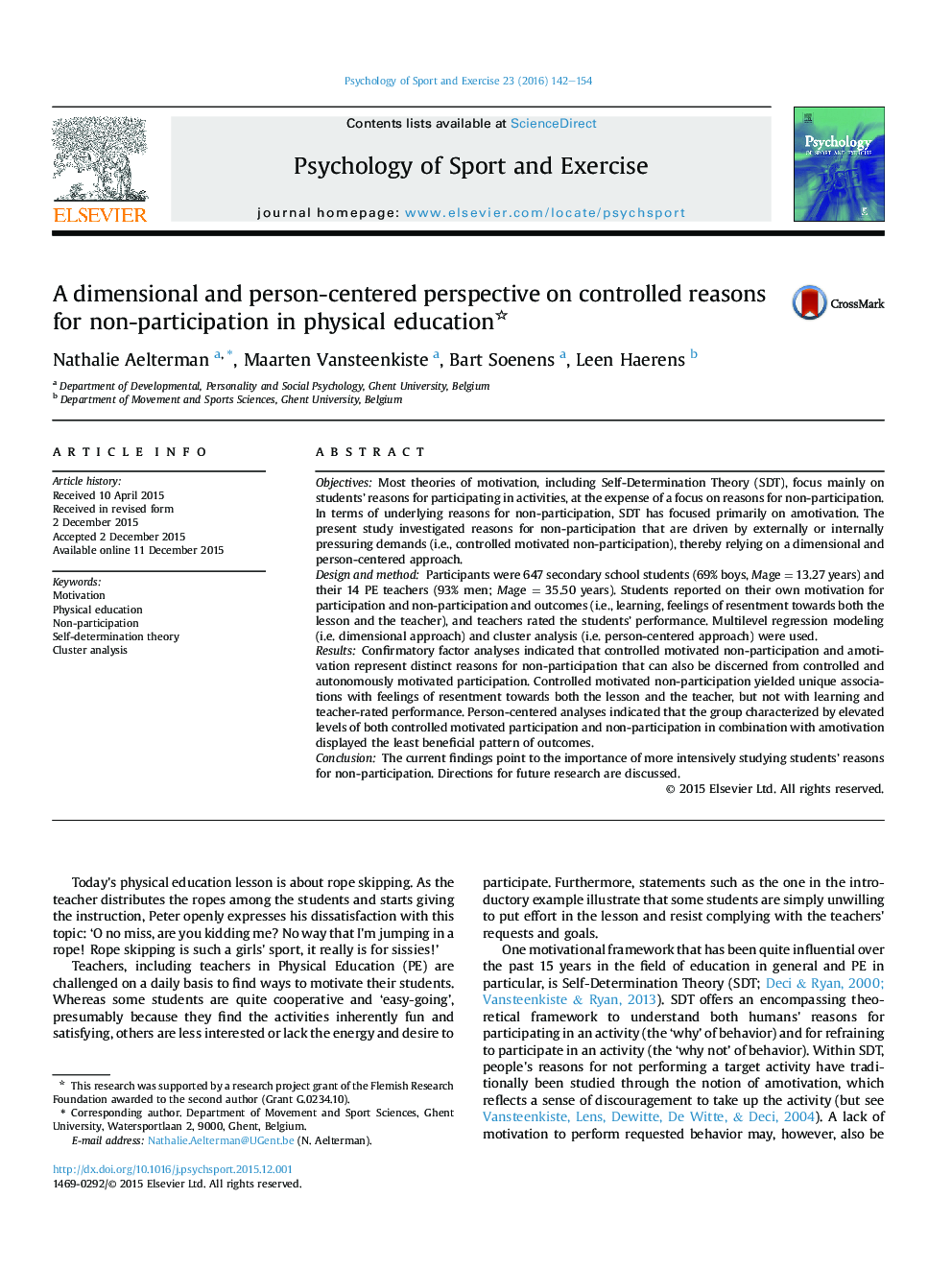| کد مقاله | کد نشریه | سال انتشار | مقاله انگلیسی | نسخه تمام متن |
|---|---|---|---|---|
| 894253 | 1472104 | 2016 | 13 صفحه PDF | دانلود رایگان |
• We investigate reasons for non-participation driven by pressuring demands.
• Controlled motivated non-participation can be discerned from classic types of motivation.
• The construct yields unique associations with students' feelings of resentment.
• Combinations of controlled motivated (non-)participation and amotivation are least adaptive.
ObjectivesMost theories of motivation, including Self-Determination Theory (SDT), focus mainly on students’ reasons for participating in activities, at the expense of a focus on reasons for non-participation. In terms of underlying reasons for non-participation, SDT has focused primarily on amotivation. The present study investigated reasons for non-participation that are driven by externally or internally pressuring demands (i.e., controlled motivated non-participation), thereby relying on a dimensional and person-centered approach.Design and methodParticipants were 647 secondary school students (69% boys, Mage = 13.27 years) and their 14 PE teachers (93% men; Mage = 35.50 years). Students reported on their own motivation for participation and non-participation and outcomes (i.e., learning, feelings of resentment towards both the lesson and the teacher), and teachers rated the students’ performance. Multilevel regression modeling (i.e. dimensional approach) and cluster analysis (i.e. person-centered approach) were used.ResultsConfirmatory factor analyses indicated that controlled motivated non-participation and amotivation represent distinct reasons for non-participation that can also be discerned from controlled and autonomously motivated participation. Controlled motivated non-participation yielded unique associations with feelings of resentment towards both the lesson and the teacher, but not with learning and teacher-rated performance. Person-centered analyses indicated that the group characterized by elevated levels of both controlled motivated participation and non-participation in combination with amotivation displayed the least beneficial pattern of outcomes.ConclusionThe current findings point to the importance of more intensively studying students’ reasons for non-participation. Directions for future research are discussed.
Journal: Psychology of Sport and Exercise - Volume 23, March 2016, Pages 142–154
